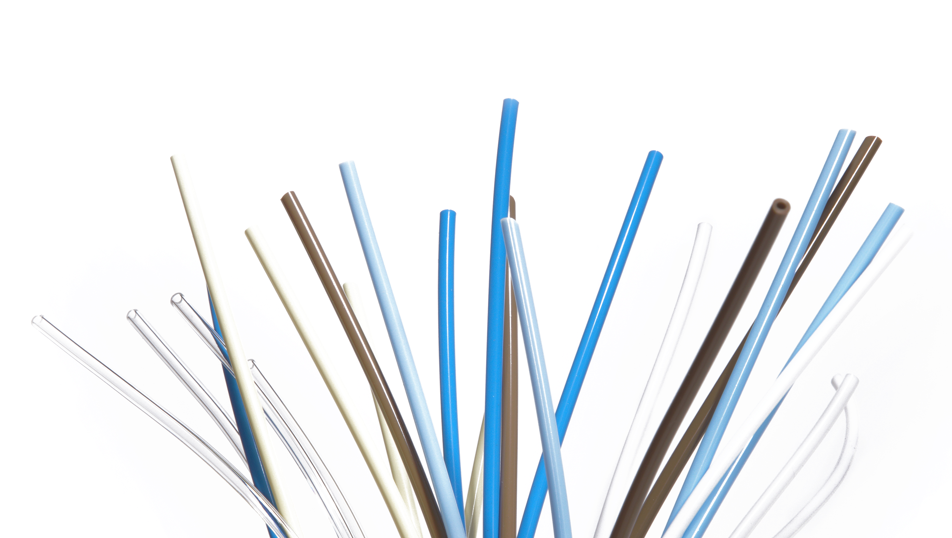
TPU (Thermoplastic Polyurethane) is a type of polymer with exceptional properties such as high performance, durability, flexibility in processing, a broad range of shore hardness, and chemical resistance. Moreover, TPU can be formulated to be biocompatible, making it a desirable material for healthcare applications. Medical-grade TPU thus serves as an appropriate alternative for PVC (Polyvinyl Chloride) in the medical sector. Here are several reasons why TPU may be preferred over PVC in medical applications:
-
Biocompatibility: Medical-grade TPU exhibit good biocompatibility, which means pose no harmful risk to the human body. This unique advantage allows medical-grade TPU to be more favorable over other types of polymers. This characteristic is especially essential for medical device/component manufacturing such as central venous catheters, tubing, urology equipment, etc.
-
Chemical Resistance: TPU possesses better resistance to chemicals and oils such as cleaning agents and solvents. This property allows it to retain its stability against other substances, enabling TPU-based medical devices to withstand regular cleaning and sterilization processes without being degraded.
-
High Degree of Flexibility and Elasticity: TPU shows remarkable flexibility and elasticity as compared to PVC and other polymers. With this distinct property, TPU can be easily processed using injection molding, extrusion, blow molding, etc. Therefore, TPU is widely adopted for various fields of application.
-
Lower Plasticizer Dependency / Plasticizer Free: Plasticizers are often used to increase the flexibility and elasticity of PVC. However, it is known that plasticizers may leach from the material over time and this poses potentially harmful effects on the human body. TPU, on the other hand, gives the desirable flexibility and elasticity with fewer or even no plasticizers. Hence, TPU has become a popular polymer as a safer choice.
-
Environmental Concerns: The manufacture, use, and disposal of PVC generate numerous environmental issues, including toxic emissions and by-products that cause ozone depletion or contamination of the environment. TPU, with its excellent properties, serves as a more environmentally friendly alternative to PVC.
As PVC can lead to environmental pollution, most countries have introduced regulations reducing the usage of the material. Medical-grade TPU hence becomes a critical alternative for the healthcare device manufacturing industry. Applications of medical-grade TPU range from cardiology, orthodontics, urology, drug delivery, wound dressings, and many more.
ICP DAS – BMP TPUs, with lot-to-lot consistency and outstanding processability, have been chosen by worldwide clients to produce components of central venous catheters (CVC) such as peripherally inserted central catheters (PICC), non-tunneled and tunneled catheters. Other applications are guidewire coatings, etc.
Vascular access devices — fundamental and yet critical — are widely used in patient care such as hemodialysis, chemotherapy, or chronic illnesses. Highly-reliable materials need to be used in the manufacture of medical device components to minimize the risk of catheter-related infection.